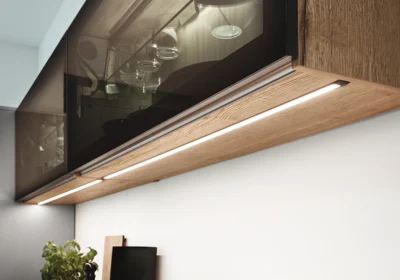
Navigating the Roofing Landscape: Unveiling the Differences Between Commercial and Residential Repairs
Your roof, whether it shelters a family home or a bustling business, serves a vital purpose – protecting your valuables from the elements. But when repairs are needed, the roofing world can seem complex. Here’s a breakdown of the key differences between commercial roofing and residential roofing repair, helping you navigate this crucial aspect of property maintenance.
Size and Complexity:
The most striking difference lies in the sheer size and complexity of the roofs themselves. Commercial buildings often boast expansive, low-slope roofs, while residential structures typically have steeper-pitched roofs. These differences necessitate distinct approaches to repair and maintenance.
- Commercial Roofs: Larger commercial roofs require a bigger crew and specialized equipment to navigate the vast surface area safely and efficiently. Additionally, these roofs often incorporate multiple layers and features, such as skylights, ventilation systems, and mechanical units, which demand additional expertise during repairs.
- Residential Roofs: Residential roofs are generally smaller and simpler, allowing for easier access and quicker repairs. While pitched roofs have their own considerations, residential roofers are well-equipped to handle the most common repairs.
Materials and Techniques:
The materials used in commercial and residential roofs differ significantly, leading to distinct repair techniques:
- Commercial Roofs: Commercial roofs commonly utilize flat or low-slope designs, often featuring materials like modified bitumen, built-up roofing (BUR), TPO (thermoplastic polyolefin), or metal. Repairs for these roofs involve techniques like heat welding, seam repairs, and membrane patching.
- Residential Roofs: Residential roofs typically use asphalt shingles, although metal, slate, or tile options exist. Repairs for these roofs involve replacing damaged shingles, flashing repair around chimneys and vents, and addressing underlayment or roof deck issues.
Maintenance Requirements:
The size and complexity of commercial roofs translate into more intensive maintenance needs:
- Commercial Roofs: Due to their large surface area and potential for water pooling, commercial roofs require regular inspections, often twice a year, to identify and address minor issues before they escalate. Additionally, the presence of HVAC units and other equipment on the roof necessitates additional maintenance considerations.
- Residential Roofs: Residential roofs generally require less frequent inspections, typically once a year, depending on the climate and age of the roof. Homeowners can perform basic maintenance tasks like clearing gutters and inspecting for visible signs of damage.
Cost Considerations:
The cost of roof repairs can vary significantly between commercial and residential projects due to several factors:
- Material Costs: Commercial roofing materials are often more expensive than residential materials. The larger surface area of commercial roofs also contributes to higher material costs.
- Labor Costs: The larger size and complexity of commercial roofs require more labor hours to complete repairs, leading to higher labor costs. Specialized equipment might also be needed for commercial projects, further impacting the cost.
- Permits and Inspections: Commercial roof repairs may require additional permits or inspections compared to residential projects, adding to the overall cost.
Choosing the Right Roofer:
When faced with roof repairs, selecting the right professional is crucial:
- Commercial Roofer: Look for a commercial roofer with experience working on large, flat roofs and familiarity with specific commercial roofing materials. Certifications in relevant areas like fall protection are also important.
- Residential Roofer: While experience with various residential roofing materials is essential, local expertise is particularly valuable. A residential roofer familiar with the climate and common roofing issues in your area can provide tailored solutions.
Conclusion:
Understanding the distinctions between commercial and residential roof repair empowers you to make informed decisions about your property’s maintenance. By considering the size, complexity, materials, and costs involved, you can choose the right approach and the right roofing professional to ensure a successful and lasting repair that protects your roof and the valuable assets it shelters.


















